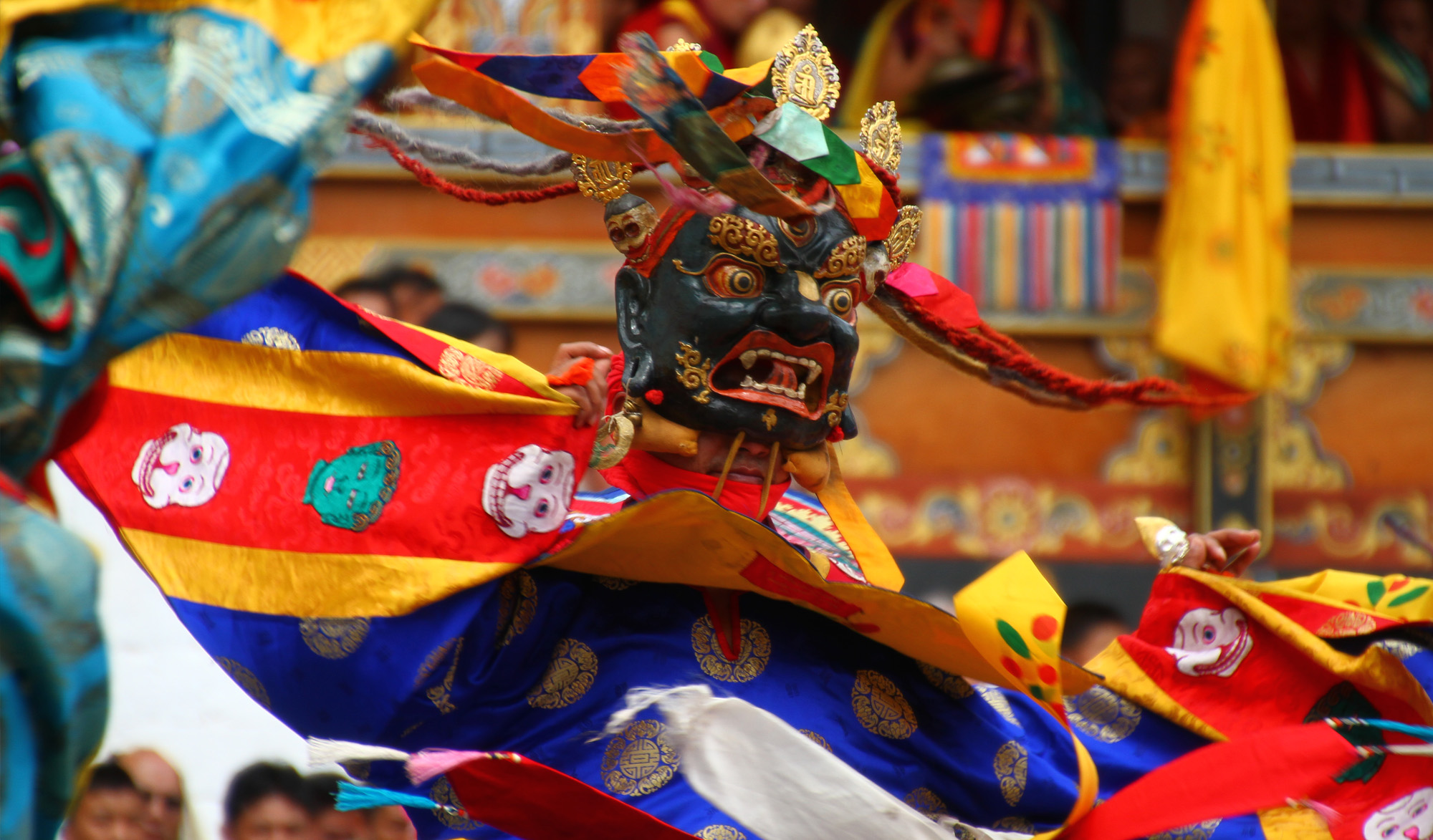
Bhutan’s most popular and ubiquitous festival is the Tshechu. This Buddhist festival is one of the prime examples of the living culture of Bhutan that many have come to admire and treasure.
Performed at the courtyard in front of Dzongs (massive fortresses) in honor of Guru Rinpochhe, the saint who brought Buddhism to Bhutan and the Himalayan world, Tshechus are held in almost every district at different time of the year.
It attracts hundreds of Bhutanese people in a spirit of festivity, celebration and depth faith. Held on the tenth day of Bhutanese month, the festivals last up to four days in which a series of highly stylized masked dance rituals are performed. Bhutanese dress in their best attire for attending this very special social occasion. Apart from Tshechu, there are also folk festivals that exist on smaller, community scale that provides fascinating insight into local beliefs and customs.
RITUALS AND MUSIC
Religious dances, rituals, folk music and dances are an integral part of all celebrations and social activities in Bhutan. Most functions begin after seeking blessings through a ritual ceremony.
Our traditional arts and songs are so important part of our traditions and customs that the government has also instituted the Royal Academy of Performing Arts, for example, to preserve the country’s traditional performing arts and train professionals in the field of Bhutanese music, dance (both religious and folk) and songs.
TRADITIONAL MEDICINES
Healthcare system in Bhutan is a blend of modern medical facilities and traditional indigenous medical treatment. The two systems coexist and are complimentary, starting from the basic dispensaries to the national hospital. The Institute of Traditional Medicine Services in Thimphu has its own production unit and the hospital for indigenous treatment.